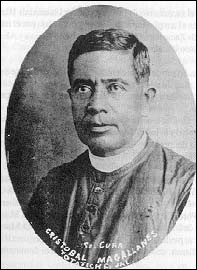St. Mary Magdalene dé Pazzi was born to a noble and wealthy Florence family during the Italian Renaissance in 1566. She made her first communion at the early age of ten, vowed virginity that same year, and at the age of twelve experienced her first ecstasy. She was allowed to enter a Carmelite convent at seventeen. It was during her novitiate that she became critically ill and thus allowed to take religious vows, after which she went into ecstasy for about two hours and then the following 40 days after receiving communion. She died in 1607 at the age of 41 and canonized a saint in 1669.
“Intimate union, God’s gift to mystics, is a reminder to all of us of the eternal happiness of union he wishes to give us. The cause of mystical ecstasy in this life is the Holy Spirit, working through spiritual gifts.” We may not have the gift of ecstasy, but we can meet Jesus in every person as Jesus tells us: “Amen, I say to you, whatever you did for one of these least brothers of mine, you did for me” (Mt. 25:40). St. Mary Magdalene dé Pazzi, pray for us!



.jpg)




 *
* *
*




